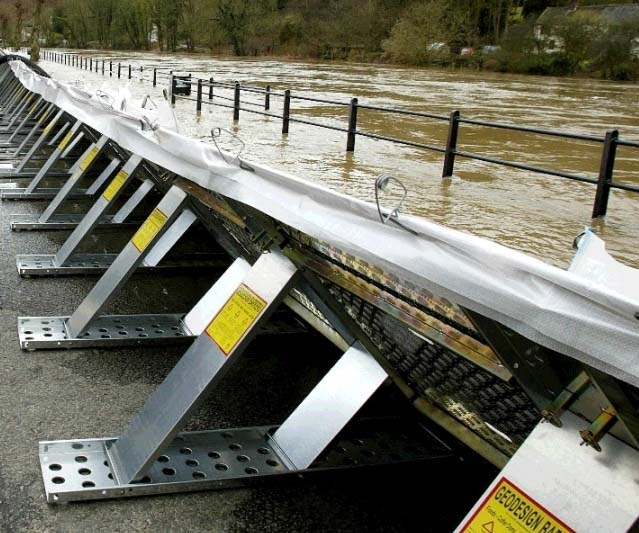Sea levels around Boston could rise as much as 7.5 feet by 2100, according to climate scientists. As a result, the city is at risk of significant flooding during high tides and normal rainfall let alone big storms.
The Urban Land Institute held brainstorming sessions over the last several months involving more than 70 engineers, architects, and development and insurance specialists to examine how rising sea levels would affect four representative areas in and around Boston. The group concluded that the area should consider building canals to absorb and divert water and higher sea walls for flood protection. It also called on called on municipalities to discuss ways to raise money for preparing vulnerable areas and to alter building and zoning rules to take the likelihood of flooding into account.
“We’re not going to start digging the canals tomorrow,” Brian Swett, Boston’s chief of energy, environment, and open space, told the Boston Globe. “But the report makes the important point that you can’t solve 6 feet of sea level rise simply by building a bigger dam on the Charles River.”
In the low-lying Alewife section of Cambridge, new residences might have to be concentrated into taller buildings with more space between them to make room for water infiltration. The report also suggested that retail shops be concentrated into a raised corridor to keep them above flood waters.
Related Stories
Codes and Standards | Jul 8, 2021
New York City shuts down 322 construction sites for unsafe conditions
Action comes as inspectors visit more than 2,100 sites.
Codes and Standards | Jul 7, 2021
Bechtel, Nautilus partner on sustainable, high-performance data centers
Facilities would use 70% less power for cooling, eliminate consumption of drinking water.
Codes and Standards | Jul 7, 2021
Surfside condo collapse could spur new legislation
Natl. Institute of Standards and Technology is investigating.
Codes and Standards | Jul 7, 2021
Intl. Code Council appoints committees to lead energy code development
One-third of appointees are government regulators.
Codes and Standards | Jul 1, 2021
COVID-19 made payment delays to contractors much worse
Only one in ten companies is always getting paid in full.
Codes and Standards | Jun 30, 2021
New resource for public sector organizations to develop energy data management program
Dept. of Energy document contains more than 30 examples of successful implementations.
Codes and Standards | Jun 29, 2021
Biden China policy may spur more increased U.S. PV manufacturing capacity
Senate bill proposes advanced solar manufacturing production credit.
Codes and Standards | Jun 28, 2021
Local and state building energy performance standards aim to curb climate change
Owners must up the ante on operations and retrofits.
Codes and Standards | Jun 24, 2021
Biden Administration will restore ‘Waters of the U.S.’ protections ended by Trump
Early revision more likely to hold up in court, says legal expert.
Codes and Standards | Jun 23, 2021
Denver unveils renewable heating and cooling plan
City releases roadmap to decarbonizing existing homes and buildings.

















